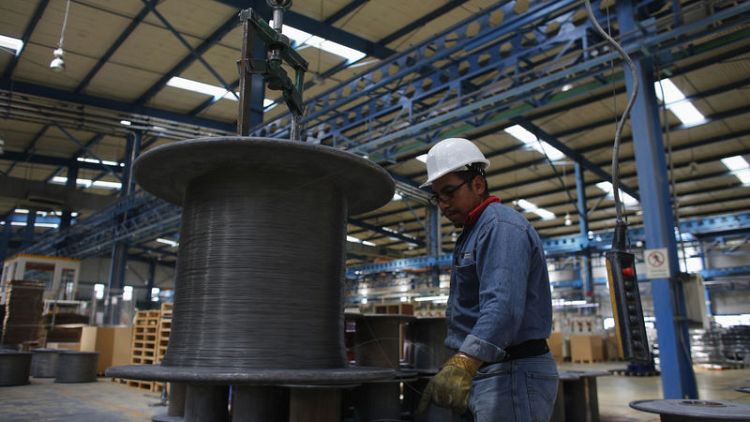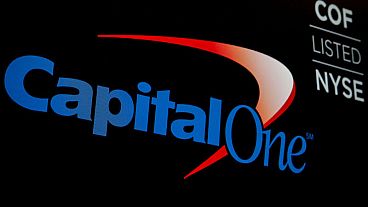By Timothy Aeppel and David Lawder
WASHINGTON (Reuters) - U.S. trade officials are pressing Mexico and possibly Canada to accept a quota plan to replace national security tariffs currently in place on imports of steel and aluminium, people briefed on the negotiations said on Thursday.
Metals tariffs are not directly part of updating the North American Free Trade Agreement as negotiators race towards a Friday deadline. The United States imposed tariffs on metal imports in March, but at the time exempted Canada and Mexico. It extended the tariffs to both countries in June.
However, all three countries in the NAFTA pact see resolving the issue as part of a larger move to normalise trade relations in the wake of months of tit-for-tat tariffs that have raised costs and snarled supply chains for North American manufacturers and farmers.
The issue is politically fraught since the Trump administration has made rebuilding U.S. basic metal industries a key promise to voters and views trade barriers as a tool to achieve that.
Commerce Secretary Wilbur Ross reiterated that view when he travelled to Kentucky last week for a ceremony marking the restart of an aluminium smelter owned by Chicago-based Century Aluminium Co <CENX.O>. Century credited the new tariffs, which put duties of 10 percent on aluminium and 25 percent on steel.
Meeting with workers at the factory, Ross said curbs on imports would remain in place long term.
South Korea in March agreed to revise a trade deal that President Donald Trump had heavily criticized. Under the revised deal, in return for being exempted from tariffs, South Korea agreed to a quota that is equal to 70 percent of the annual average Korean steel exports to the United States between 2015-2017.
“In the end, to make sure this is effective, you either have to have a tariff or a quota," said Jesse Gary, general counsel for Century. "South Korea is an example of how the administration is approaching this. That’s our expectation.”
Brazil and Argentina also have accepted metals quotas to avoid tariffs.
Any deal on the metals tariffs is not expected until after the three sides settle on terms for an updated NAFTA agreement.
“The U.S. and Mexico are discussing a quota-based structure for the steel and aluminium imports into the U.S. and more time is needed,” Dan Ujczo, a U.S. trade lawyer who focuses on Canadian issues, said in a letter to clients this week seen by Reuters.
He said a deal on tariffs with Mexico, and potentially lifting of tariffs on Canada, is likely to “be announced during the 90-day consultation between the ‘handshake’ and signature” on a NAFTA revision.
A quota system would keep U.S. metal prices high by limiting supply and lead to potential shortages. Any push for quotas faces strong opposition in all three countries.
Domestic metal producers like Century, Nucor Corp. <NUE.N>, United States Steel Corp <X.N>, and ArcelorMittal <MT.AS>could benefit. But Stelco Holdings Inc <STLC.TO>., based in Canada, would likely suffer.
CANACERO, Mexico’s steel industry association, said on Wednesday that Mexico should seek exclusion from U.S. tariffs on steel imports before completing negotiations on a new NAFTA agreement.
Joseph Galimberti, president of the Canadian Steel Producers Association, took a similar stance: “Canadian steel producers are hopeful that a 232 exclusion for NAFTA countries will be possible as part of a final trilateral agreement.” Section 232 of the Trade Expansion Act of 1962 allows the president to impose tariffs on imports deemed a threat to national security.
U.S. importers and manufacturers also want the tariffs to go away but oppose replacing them with quotas.
“We believe that quotas on aluminium and steel will undermine the competitiveness of equipment manufacturers in the United States and jeopardise the benefits of free and fair trade,” said Kip Eideberg, vice president of public affairs and advocacy at the Association of Equipment Manufacturers.
(Reporting by Timothy Aeppel and David Lawder; Additional reporting by Allison Martell in Toronto and Daina Beth Solomon and Anthony Esposito in Mexico City; Editing by Lisa Shumaker and Dan Grebler)



